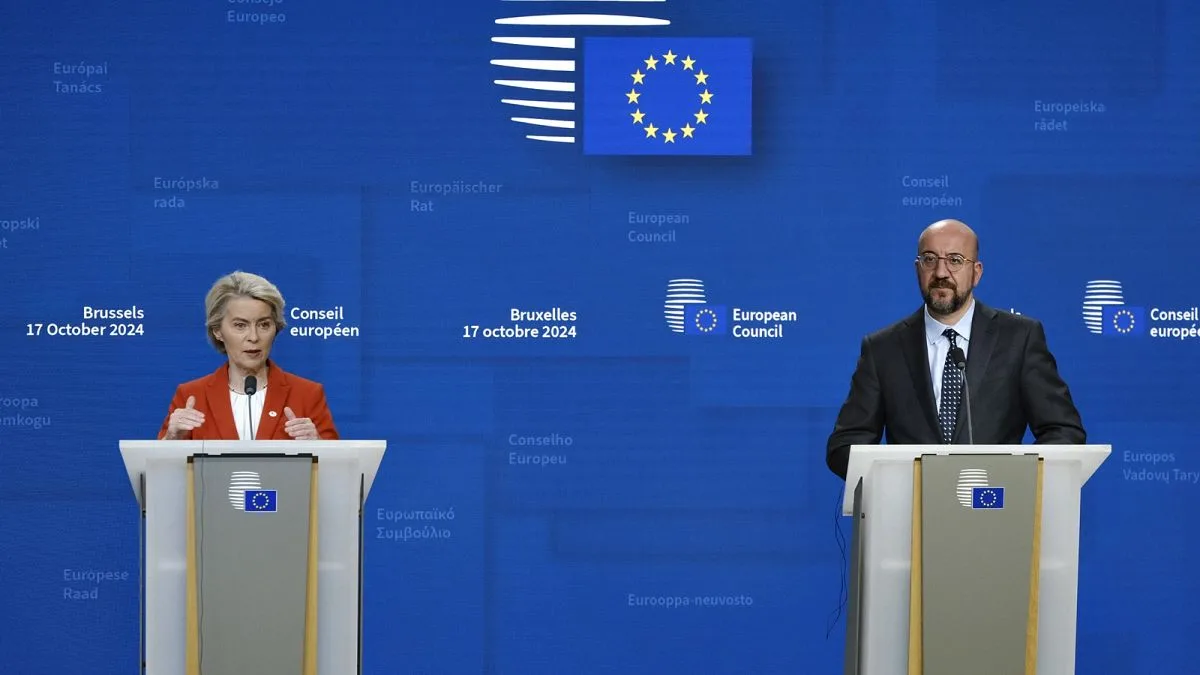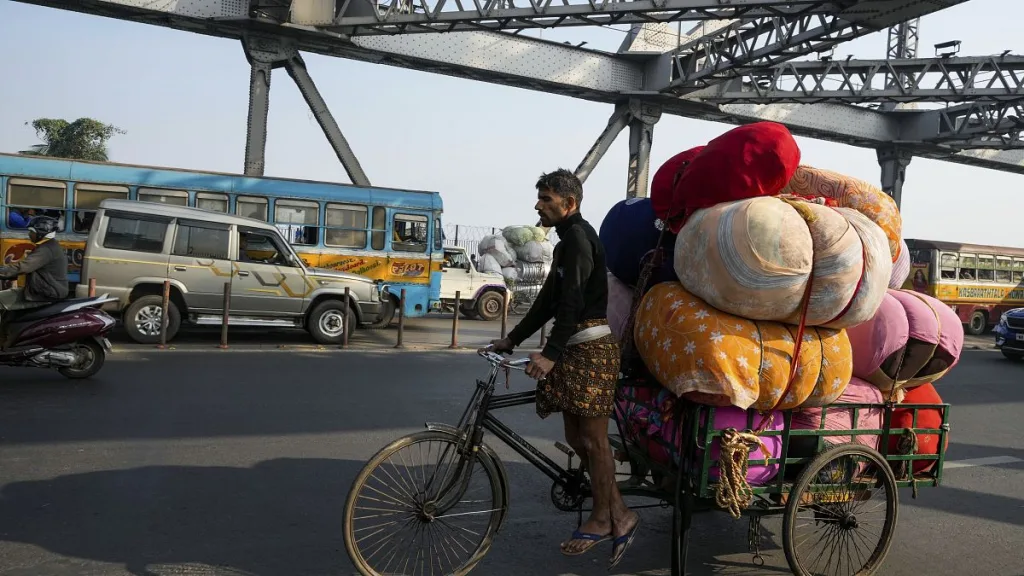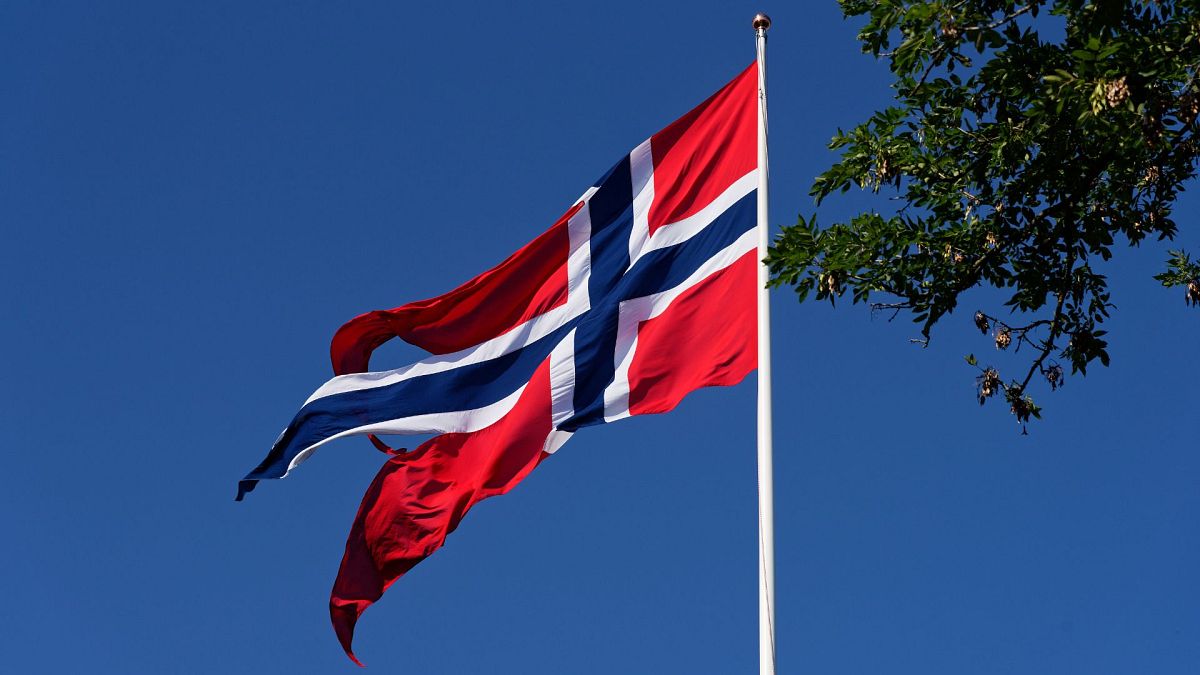At the conclusion of a significant summit in Brussels, European Union leaders indicated a possible shift in the bloc’s migration policy approach.
The 27 EU leaders provided their clearest endorsement yet of the controversial plan to outsource migration policy. While the summit concluded with limited specifics on implementation and the safeguarding of human rights during the transfer of migrants outside the EU’s borders, the tone was unmistakable.
In the summit conclusions, they stated, “New ways to prevent and counter irregular migration should be considered, in line with EU and international law.”
This vague suggestion potentially opens the door for experiments with established legal norms, promoting what some leaders refer to as “innovative solutions” to reduce the soaring number of asylum applications, which reached 1,129,000 last year—the highest since 2016.
Prior to this summit, a coalition led by Italy’s Giorgia Meloni, the Netherlands’ Dick Schoof, and Denmark’s Mette Frederiksen gathered countries favoring outsourcing to establish a united front, setting the tone for the lengthy discussions.
The final agreement notably omitted a proposal to build “return hubs” in non-EU nations for individuals whose asylum requests have been denied. Nonetheless, Ursula von der Leyen, President of the European Commission, referenced the concept, acknowledging that it remains a viable option.
“The return hubs have been discussed. There are open questions: For how long can people be there? What happens if a return is not feasible?” von der Leyen commented during a press briefing, acknowledging the complexities involved.
While she did not specify potential locations for these return hubs, von der Leyen hinted at a legislative proposal aimed at expediting deportations, which may encompass this critical element. Additionally, she suggested encouraging asylum procedures to take place outside the EU through two avenues:
- A program establishing international protection for migrants in “safe third countries” instead of within the EU, promising to reassess the definition of “safe countries.”
- Financial assistance for the UN Refugee Agency (UNCHR) and the International Organization for Migration (IOM) to facilitate the return of “stranded” migrants to their home nations.
However, Spain’s Pedro Sánchez and Belgium’s Alexander De Croo expressed their criticism of the “return hubs,” arguing that the financial burden would be excessive and that such measures wouldn’t address the fundamental issues driving irregular migration. “History has demonstrated that these solutions yield minimal results,” De Croo asserted.
Despite their dissent, the diminishing opposition suggests a notable trend toward supporting the outsourcing of migration management. This shift occurs alongside persistent warnings from humanitarian organizations about potential harm to the asylum process and human rights violations.
European Council President Charles Michel acknowledged the growing convergence among leaders on migration strategies, particularly focusing on the external aspects and operational actions in migration management.
The Weaponization of Migration
The summit also tackled the urgent matter of instrumentalized migration, predominantly orchestrated by Belarus and Russia along the EU’s eastern borders—a situation acutely experienced by Poland, Finland, and the Baltic states.
Polish Prime Minister Donald Tusk initiated discussions by proposing a strategy to counter instrumentalization, which includes a “temporary territorial suspension of the right to asylum.” This extensive proposal appears to conflict with a fundamental principle of international law requiring countries to assess every asylum claim. Surprisingly, it did not raise concerns amongst fellow leaders, according to several diplomatic sources.
Tusk highlighted that he was inspired by Finland’s emergency law introduced in July, which legal scholars contend legitimizes pushbacks. “I completely understand Poland and Donald Tusk’s proposal to secure borders against instrumentalized migration from Russia and Belarus,” stated Finnish Prime Minister Petteri Orpo.
“We faced a similar situation last year. We enacted national legislation, but it is not a sustainable solution. We require collective European legislation against instrumentalized migration,” he emphasized.
This sentiment is reflected in the leaders’ conclusions, stating, “exceptional situations necessitate appropriate measures,” emphasizing the need to protect external borders in accordance with EU and international law.
However, the boundaries between legal and illegal forms of intervention remain ambiguous. The Commission has yet to finalize its internal review of the Finnish legislation, leaving unclear the extent of Brussels’ tolerance at this pivotal moment.
“These are hybrid assaults by state actors, and Poland, along with other member states, must be able to safeguard our union from such threats,” von der Leyen highlighted, stressing the need for Poland and others to execute temporary and appropriate measures.
The summit’s outcomes also called for the Commission to forge broader EU-funded agreements with neighboring nations to prevent migrant arrivals. Von der Leyen celebrated the success of her agreement with Tunisia, noting a 64% decline in migrant flows across the Central Mediterranean this year.
Crucially, the leaders’ statement underscored “the importance of implementing adopted EU legislation,” a significant achievement for the Commission after Poland and Hungary recently opted to disregard the migration reforms finalized in May.
Photo credit & article inspired by: Euronews



